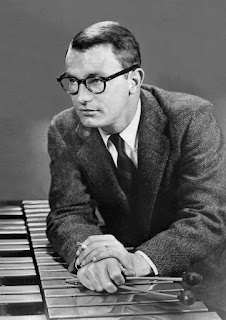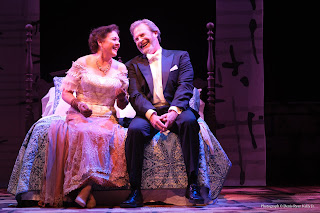'Catch the Groove': Pioneer of Latin jazz recaptured during early peak
I remember from my adolescent years as a Down Beat subscriber the damning with faint praise a release
 |
| Cal Tjader had clear artistic vision. |
by Cal Tjader was likely to receive. As a result, I never parted with any of my meager disposable cash to buy an LP by the California vibraphonist.
From later acquaintance with Tjader's success as a Concord Records artist I sensed that there is indeed an easy-listening mist pervading his music. The Latin groove became influential and well-developed as a Tjader signature.
I suspect that the traditional Down Beat orientation toward the East Coast may have been behind the magazine's lack of enthusiasm for Tjader. Moreover, the influence of Latino giants purveying more excitable, jazz-oriented dance music, such as the popular mambo king Tito Puente, took over this mid-century jazz offshoot. And then there is Dizzy Gillespie's deeply informed ride on the idiom through most of the trumpeter's career.
"Catch the Groove — Live at the Penthouse, 1963-1967" (Elemental Music), previously unissued performances available on two CDs, is newly available as a limited edition three-LP set and as a digital download. It's another tantalizing treasure from producer Zev Feldman on his imprint, Jazz Detective.
The performances, recorded at a Seattle jazz club, present the pioneering vibist in quintet settings over several years when he was making his reputation as both a Latin-jazz proponent and a straight-ahead jazzman with a personal style and plenty of well-turned improvisational ideas. The sound is exemplary, vaulting over the decades to make a firm impression on 21st-century ears.
As a melodically inclined player, which became an advantage as Tjader made a splash in the mainstream close to smooth jazz, he is much in evidence here. His small-group arrangement savvy sets up ballads especially well. "It Never Entered My Mind" features an inviting statement by the ensemble. "Here's That Rainy Day" is also typical of Tjader's way with ballads: sometimes dramatic pauses between phrases build anticipation; lightly ornamented lines becomes florid without losing their character.
Bluesy hints in the leader's solo during the chestnut "On Green Dolphin Street" evokes a better-known contemporary vibes master, Milt Jackson. But when the theme returns, Tjader's affinity for letting his instrument's resonators shine wins out. Bell-like fading sometimes appealed to him, and he made shrewd use of it as part of his signature.
For Indiana jazz fans in particular, the presence of Monk Montgomery on bass on the second CD is a big plus. Of the two versions of "On Green Dolphin Street," the second one, with Montgomery in the group, has real stature, thanks to the transplanted Hoosier's top-drawer "walking" bass. And his solo in "Bags' Groove" lifts the performance above the leader's idiomatic, but too "chill," turn in the spotlight.
Tjader nonetheless deserves respect for the deep groove and fetching ideas he displayed in the mid-sixties, including his bandleading skills on top of his authentic jazz savvy on his instrument. I offer as a case in point "Sunset Boulevard," which conveys the title's hint of glamour even as it undeniably catches the groove Tjader had access to.



Comments
Post a Comment